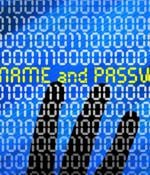Security News

The US government has recovered over $15 million from Swiss bank accounts belonging to operators behind the '3ve' online advertising fraud scheme. 84 to the US government as part of a Final Order of Forfeiture related to United States v. Sergey Ovsyannikov, one of the conspirators in the global ad fraud campaign.

Thousands of North Korean "Highly skilled IT workers," at the direction of or forced by their government are targeting freelance jobs at organizations in wealthier nations. In some cases, DPRK's dispatched wage earners - typically located in China, Russia, Africa, and Southeast Asia, have aided with selling data stolen in attacks from North Korean hackers.

Thousands of North Korean "Highly skilled IT workers," at the direction of or forced by their government are targeting freelance jobs at organizations in wealthier nations. In some cases, DPRK's dispatched wage earners - typically located in China, Russia, Africa, and Southeast Asia, have aided with selling data stolen in attacks from North Korean hackers.

US prosecutors have accused an American citizen of illegally funneling more than $10 million in Bitcoin into an economically sanctioned country. It's said the resulting criminal charges of sanctions busting through the use of cryptocurrency are the first of their kind to be brought in the US. Under the United States' International Emergency Economic Powers Act, it is illegal for a citizen or institution within the US to transfer funds, directly or indirectly, to a sanctioned country, such as Iran, Cuba, North Korea, or Russia.

The US Department of Justice today said that Moises Luis Zagala Gonzalez, a 55-year-old cardiologist with French and Venezuelan citizenship residing in Ciudad Bolivar, Venezuela, created and rented Jigsaw and Thanos ransomware to cybercriminals. "As alleged, the multi-tasking doctor treated patients, created and named his cyber tool after death, profited from a global ransomware ecosystem in which he sold the tools for conducting ransomware attacks, trained the attackers about how to extort victims, and then boasted about successful attacks, including by malicious actors associated with the government of Iran," said US Attorney Breon Peace.

A Ukrainian man has been sentenced to four years in a US federal prison for selling on a dark-web marketplace stolen login credentials for more than 6,700 compromised servers. The prosecution's documents [PDF] detail an unnamed, dark-web marketplace on which usernames and passwords along with personal data, including more than 330,000 dates of birth and social security numbers belonging to US residents, were bought and sold illegally.

Software made unsafe by dependencies should be fixed without users needing to interact with the source of the problem, according to US National Cyber Director Chris Inglis, who serves in the Executive Office of the President. Speaking to The Register at the Black Hat Asia conference in Singapore on Friday, Inglis said that when a faulty component in a car needs to be replaced, the manufacturer who chose that component takes responsibility for securing safe parts and arranging their installation.

Cyber war has become an emerged aspect of broader armed conflicts, commencing before the first shot is fired, cybersecurity expert Kenneth Geers told the audience at the Black Hat Asia conference on Friday. "Peacetime in cyberspace is a chaotic environment," said Geers, who has served as a visiting professor at Kiev National Taras Shevchenko University, represented the US government at NATO, and held senior roles at the National Security Agency.

The Iran-linked Cobalt Mirage crew is running attacks against America for both financial gain and for cyber-espionage purposes, according to Secureworks' threat intelligence team. For the espionage strikes, Cobalt Mirage pulls off targeted intrusions to gain access and collect intelligence, though the snoops appear to be experimenting with ransomware here as well, the threat hunters wrote.

Many of the victimized entities were U.S.-based financial institutions and brokerage firms that suffered direct system compromise from Mustapha and his co-conspirators, who performed unauthorized transactions using other peoples' brokerage accounts. "The defendant was part of a nefarious group that caused millions of dollars in losses to victims by engaging in a litany of cybercrimes, including widespread hacking, fraud, taking control of victims' securities brokerage accounts, and trading in the name of the victims," stated U.S. Attorney Breon Peace.